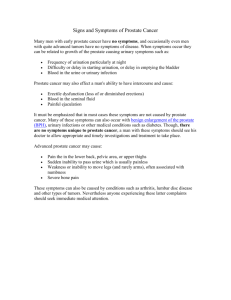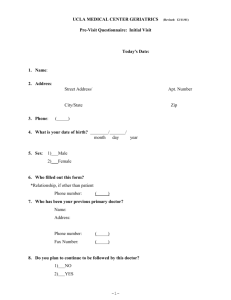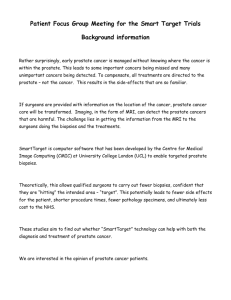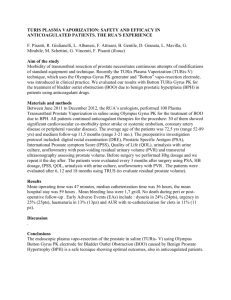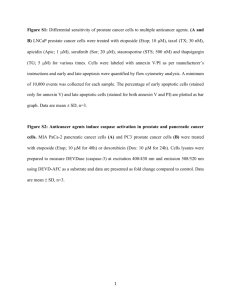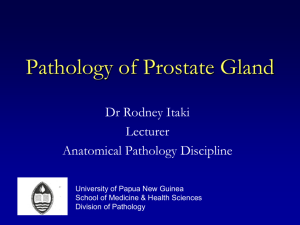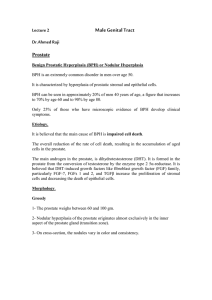symytoms- what symptoms - The West Wales Prostate Cancer
advertisement
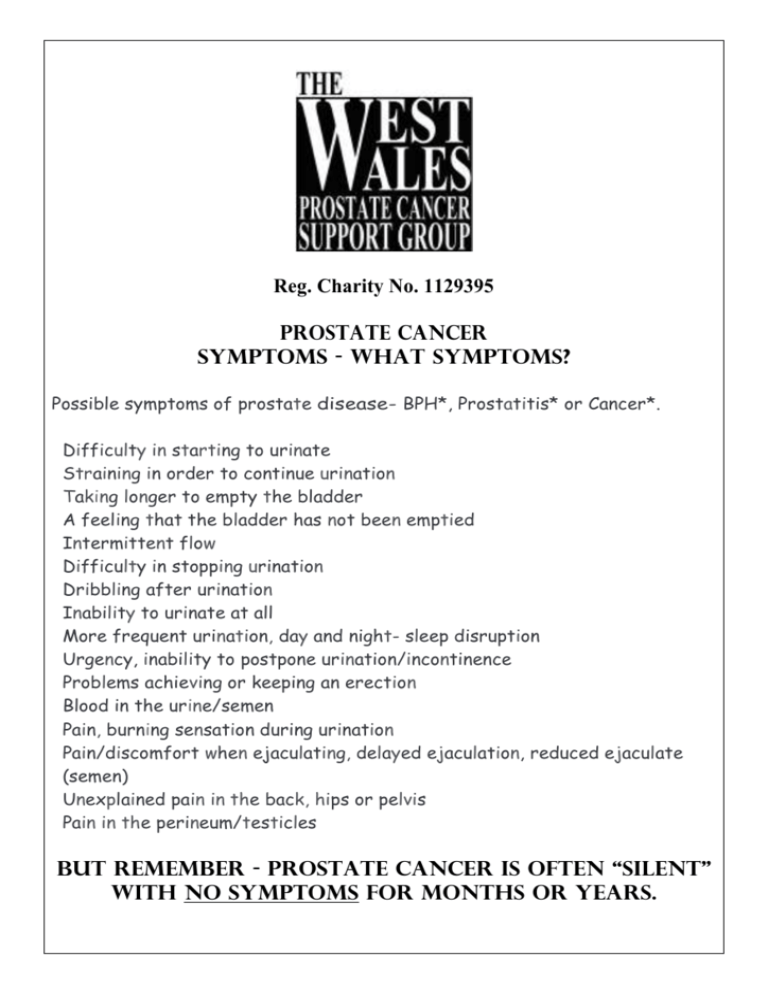
Reg. Charity No. 1129395 PROSTATE CANCER SYMPTOMS - WHAT SYMPTOMS? Possible symptoms of prostate disease- BPH*, Prostatitis* or Cancer*. Difficulty in starting to urinate Straining in order to continue urination Taking longer to empty the bladder A feeling that the bladder has not been emptied Intermittent flow Difficulty in stopping urination Dribbling after urination Inability to urinate at all More frequent urination, day and night- sleep disruption Urgency, inability to postpone urination/incontinence Problems achieving or keeping an erection Blood in the urine/semen Pain, burning sensation during urination Pain/discomfort when ejaculating, delayed ejaculation, reduced ejaculate (semen) Unexplained pain in the back, hips or pelvis Pain in the perineum/testicles BUT REMEMBER - PROSTATE CANCER IS OFTEN “SILENT” WITH NO SYMPTOMS FOR MONTHS OR YEARS. THE PROSTATE. The prostate is made up of several zones including: Transitional Zone Peripheral Zone The Peripheral Zone Most cancer occurs in this area and grows outwards, often with no symptoms, particularly in the early stages (localised prostate cancer) when prostate cancer can be more easily treated and cured. Screening using the PSA (prostate specific antigen) test is an important tool, along with a DRE (digital rectal examination) in diagnosing symptomless men who are unaware that they have prostate cancer. The Transitional Zone This is a much smaller area at the centre of the prostate adjacent to and surrounding the urethra. Benign Prostatic Hyperplasia (BPH)* - non-cancerous growth of the prostate, occurs here and grows inwards constricting the urethra. Men displaying symptoms of prostate disease are therefore more likely to be suffering from BPH, Prostatitis* (inflamed prostate), or locally advanced or advanced prostate cancer which is harder to treat]. *Prostatitis is more likely to occur in men aged 30-50 *Prostate cancer is more likely to occur in men over 50 *Benign Prostatic Hyperplasia is more likely to occur in men over 60 Produced by and for the West Wales Prostate Cancer Support Group June 2009: Confidential Helplines- 01559 363 154 and 01834 831442
